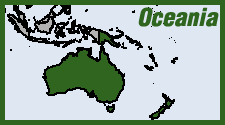 As New Zealand waits on a promised cannabis legalization referendum, a domestic industry is starting to blossom, with big capital inflows reported. But police cannabis seizures are actually up—and the government even shows sings of wavering on following through with its commitment to hold a binding referendum.
As New Zealand waits on a promised cannabis legalization referendum, a domestic industry is starting to blossom, with big capital inflows reported. But police cannabis seizures are actually up—and the government even shows sings of wavering on following through with its commitment to hold a binding referendum.
Local headlines were made in New Zealand last week, when the archipelago nation received the first multi-million dollar foreign investment for its nascent cannabis industry. And with a referendum on a general legalization of cannabis on track for next year, hope are high.
The New Zealand Herald reported that newly established Pure Cann New Zealand—which counts former Air New Zealand boss Rob Fyfe as its executive chair— has secured $6 million from Australia's Cann Group for a 20% stake. Cann Group was the first company to win a cultivation license in Australia, which has had a medical marijuana program since 2016. Cann Group is itself 20% owned by Aurora Cannabis, one of Canada's biggest licensed producers.
The funds are to be transferred in stages as New Zealand unfolds its new regulation regime for medical marijuana cultivations, with approval for a cultivation facility anticipated this year. Prospects could soar if voters approve a general legalization in next year's referendum, which the Labour Party government agreed to as a condition of a "confidence and supply" deal with the Green Party. Cann Group has the option to increase its share to 30%.
This development comes five months after the government both passed a medical marijuana law and committed to hold the legalization referendum in 2020. Yet, despite this progress, there may be some clouds on the horizon...
Cannabis seizures up
In some counterintuitive news, just as the Cann Group investment story broke, Stuff.co.nz reported that New Zealand's police "had a bumper haul of cannabis last year." Figures released to Stuff under the Official Information Act revealed that officers confiscated almost 800,000 grams of harvested cannabis in 2018, with a claimed total "street value" of more than $15 million—surpassing the totals for the previous three years.
The number of confiscated plants did decrease, dropping to about 45,000 from some 180,000 in 2015. So did the number of people appearing before district courts on cannabis charges—leading the New Zealand Drug Foundation to describe the situation as "decriminalization by stealth." But seizurs of harvested bud jumped, with the illicit cultivation hubs being named as Waikato, Bay of Plenty and Northland, all on the North Island.
Detective Superintendent Greg Williams of the New Zealand Police told Stuff that officers are still putting "significant resources" into hunting out large-scale cannabis grows, which he said are "predominantly associated with organized crime."
In all-too-familiar prohibitionist verbiage, he added: "Cannabis, particularly its manufacture, distribution and supply, continues to be an important focus for police given its links to organized crime and the harm it causes in our communities. Cultivation remains an important part of illicit drug supply in New Zealand for gangs and organized crime."
Balking on the referendum?
The prohibitionist lobby is already hard at work trying to turn public opinion ahead of next year's vote. Stuff also reported last week that the conservative group Family First released a "shock poll," conducted for the group by reputable market research firm Curia, with just 18% of respondents supporting "lifting restrictions" on recreational cannabis use. Yet this was in dramatic contrast to the 65% supporting legalization or decriminalization of personal use in a poll by the same firm in 2017.
This appears to be a study in how surveys get the results they want by how they craft the questions. The Family First poll also included several questions seemingly designed to prejudice the outcome of the "lifting restrictions" question. These included: "Are tobacco companies pushing for cannabis legalization?" and "Do you think that drivers using cannabis are more likely or less likely to cause accidents?"
More disconcertingly, Auckland's News 1 reported earlier in April on an uninspiring exchange in Parliament, when the conservative National Party's Paula Bennett questioned Prime Minister Jacinda Ardern on details of what will be proposed in the upcoming referendum—and the process for making it happen in a legally binding manner.
"When will the cannabis referendum bill be introduced to the House?" Bennett asked. Ardern replied in classically noncommittal terms: "The question as to whether or not there would be a bill more broadly, that's something that will be announced once Cabinet has finalized its decisions." Next asked if she could confirm whether legislation needs to be passed approving the referendum in order for it to be binding, Ardern again responded by punting to her cabinet: "Once Cabinet has finalized its decisions, we will be making announcements to the degree of detail."
Auckland's News 1 reported May 2 that the Justice Ministry is preparing to hand in its proposal for the shape of the referendum question to the full cabinet next week.
Cross-post to Cannabis Now







Recent comments
3 weeks 6 days ago
4 weeks 6 hours ago
7 weeks 23 hours ago
8 weeks 6 hours ago
12 weeks 13 hours ago
15 weeks 5 days ago
19 weeks 6 days ago
20 weeks 4 days ago
30 weeks 4 days ago
34 weeks 4 days ago